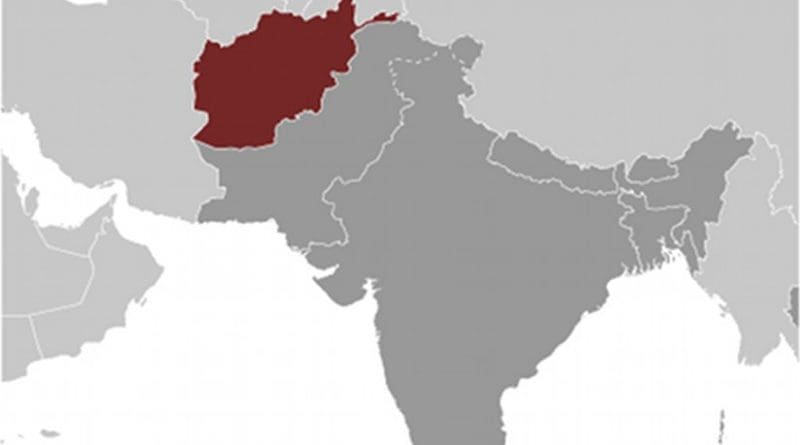Between The Devil And The Deep Blue Sea – OpEd
The Taliban takeover of Afghanistan has caused a major setback to India. This quick political and military sweep has stunned the whole world. Taliban have proved that they are a key player in the region and undeniable to be recognized by the world. This transition of power has not only changed the Geopolitical scenario but also uncovered some winners and losers in the region. Contemporarily, China and Pakistan will be going to benefit the most, whereas, India has become the most ‘disadvantaged’ player in the region with regards to its interests.
Highlighting the interests of neighbouring countries, China seeks security for its economic interests and will reap as many economic benefits as it can by peaceful means of engagement with future government of Afghanistan. The billion dollars’ worth of minerals has caught China’s attention. Besides, China is also keen on expanding the Belt and Road Initiative (BRI), taking it to Afghanistan. China’s growing influence in the region will allow it to deter India and the U.S. Due to the political differences between China and the previous Ashraf Ghani-led government, it did not make much headway. But this time, the Taliban believe that the initiative is good for the development and prosperity in the war-ravaged country and in the region. Pakistan, on the other hand, will have a Pakistan-friendly government in Afghanistan to promote peace and economic prosperity. It will also allow Pakistan to focus more on the Pakistan-India border. Previously, Pakistan was focusing on two fronts i.e., the Indian side of the border and the Afghanistan side of the border. In future, with possibly a friendly government in Afghanistan, Pakistan’s diverged attention would shift only to the Indian side of the border.
Offensively, India’s approach had always been Pakistan-centric. India did whatever it took to deter Pakistan and in fact, become a regional hegemon competing China. From conducting terror attacks, promoting Pashtun and Baloch separatist movements within Balochistan, to disrupting the progress of CPEC; India had left no opportunity in creating violence and chaos in Pakistan’s territory. The grounds on which India operated for achieving its objectives against Pakistan, was Afghanistan. The biggest loss for India is losing that land which served its destabilizing operations against Pakistan. It went from the ‘closest assumed’ to the ‘farthest’ strategic partner of Afghanistan. With the Taliban takeover, India has lost hope.
New Delhi’s Investments in Afghanistan
India’s interest in Afghanistan can be judged by its massive investment in Afghanistan. India has invested approximately 3 billion dollars in various projects in Afghanistan. India also invested 90 million dollars in the construction of Afghanistan’s parliament building. India had touched all 34 provinces of Afghanistan with its ‘400 plus projects’. It left no part of Afghanistan untouched. India and Afghanistan’s bilateral trade had reached 1.5 billion dollars between 2019-2020. This transition has caused a major ‘body blow’ to India’s strategic interests in the region.
India has to decide between recognizing the Taliban or isolating it. In both cases, India is ‘between the devil and the deep blue sea.’ Isolating the Taliban would in return isolate India in the region, where it will be surrounded by its potential adversaries i.e., ‘Taliban in Afghanistan, arch-rival Pakistan and dominating China.’ Even if India recognizes the Taliban, which it never wanted to and is unpalatable to its strategic interests, will give recognition, power, and confidence to the Taliban.
A Drowning Man Clutching at a Straw
Despite losing its influence over Afghanistan, India will try not to disengage with the Taliban and will keep the room open for collaboration. This time, at least for the beginning, the Taliban will do the most to prove a positive image in world’s eye. Taliban have not only declared amnesty across Afghanistan but have also assured that its soil shall not be used against any other country. India would likely be reluctant of repeating the mistakes and this time it will reach out to the Taliban by not only recognizing them but later on, also creating and maintaining diplomatic channels with them.
Since the Taliban takeover, the priority of various states was to evacuate their citizens and officials safely from Afghanistan. Once, they are over with it, their priority will shift to taking part in the formation of a ‘friendly’ and ‘inclusive’ government formation in Afghanistan. India will jump on the bandwagon and do its best to take part in the formation of that government and establish its ties with it.
The situation in Afghanistan is constantly fluctuating. Just like the Taliban defied all odds by capturing Kabul in a couple of weeks. It is, therefore, uncertain to predict what major changes would occur with regards to Afghanistan in a couple of months or even a couple of weeks. Meanwhile, the Taliban will likely to focus more on the ‘survivability’ and ‘sustainability’ of its interim government and focusing more on resolving the humanitarian crisis in Afghanistan. The world will have to wait and watch!
Muhammad Adil is a Research Assistant at Balochistan Think Tank Network (BTTN) at BUITEMS, Quetta.

